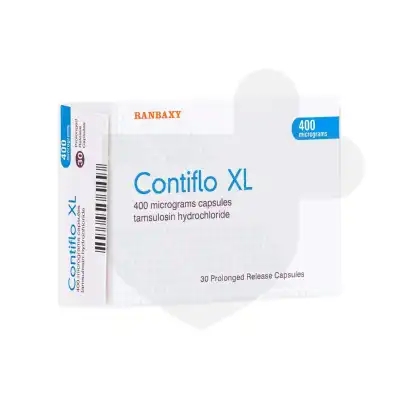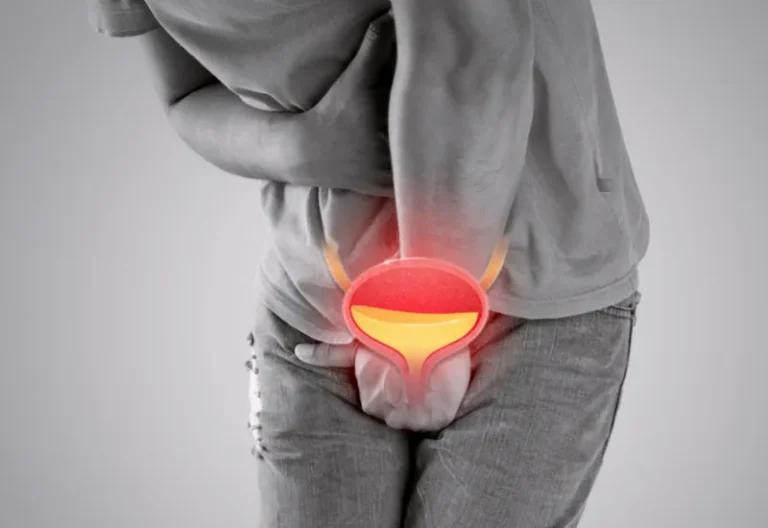Buy Urinary Retention Treatments Online With Free Next-Day Delivery
START YOUR TREATMENT TODAY
Available Treatments for Urinary Retention
SAFE PRESCRIBING
Get Started With the Right Treatment for You
MEDICAL INFORMATION
Urinary Retention Key Facts
Urinary Retention is a condition where the bladder is unable to fully empty. This can be distressing and uncomfortable and may have underlying causes. Here, we will take a closer look at Urinary Retention, its symptoms, causes, diagnosis, and treatment options.
What is Urinary Retention?
Urinary Retention occurs when the bladder is not able to empty properly. It can be classed as acute Urinary Retention when there is a sudden and complete inability to urinate, or chronic Urinary Retention, where there is a gradual or incomplete inability to fully empty the bladder. Men and women can both experience Urinary Retention, but it is more common in men, often due to prostate enlargement.
What are the causes of Urinary Retention?
Acute Urinary Retention: The sudden and complete inability to pass urine despite having a strong urge to do so. This normally develops rapidly, is often associated with severe pain and discomfort and needs immediate medical attention. Common causes of acute Urinary Retention include:
- A blockage in the urinary tract, such as urinary stones, blood clots, or tumours, obstructing the flow of urine
- Certain medications can cause acute Urinary Retention as a side effect
- Conditions that affect the nerves or muscles controlling bladder function, such as spinal cord injury or nerve damage
Chronic Urinary Retention is long-term or the ongoing inability to completely empty the bladder. This may develop more slowly and may not cause sudden or severe symptoms. Symptoms of chronic Urinary Retention include weak urine flow and a feeling of incomplete bladder emptying. Causes include:
- Benign Prostatic Hyperplasia (BPH): Enlargement of the prostate gland, a common condition in older men, obstructing the flow of urine
- Pelvic organ prolapse: Weakened pelvic floor muscles or conditions like cystocele or rectocele in women
- Neurogenic disorders, affecting nerves controlling bladder function, such as multiple sclerosis, Parkinson’s disease, or spinal cord injuries
Some individuals may experience a combination of acute and chronic symptoms.
What are the risk factors of Urinary Retention?
Several risk factors may increase the likelihood of developing Urinary Retention. These include:
- Urinary Retention is more common in males than females, partly due to anatomical differences, such as the longer male urethra and the prostate gland. Prostate enlargement or prostate cancer can block the flow of urine causing Urinary Retention
- As individuals age, bladder muscles may weaken, leading to impaired bladder emptying
- Certain neurological disorders can affect coordination between bladder muscles and urinary sphincters. Spinal cord injury, multiple sclerosis, Parkinson’s disease, stroke, and nerve damage can all interfere with nerve signals responsible for bladder control
- Certain medications, such as antihistamines, anticholinergic drugs and decongestants can affect bladder function, increasing the risk of Urinary Retention
- Surgical procedures such as prostate surgery, bladder surgery, or pelvic surgery may cause temporary or persistent Urinary Retention
- Obstruction along the urinary tract, such as kidney stones, bladder stones, urethral stricture, or tumors, can stop the normal flow of urine
- Chronic constipation can cause “fecal impaction,” where a large, hard stool mass blocks the rectum, putting pressure on the bladder
Other factors can also contribute to the development of the condition. If you have concerns it is recommended you consult with a healthcare professional for a proper evaluation and management.
What are the symptoms of Urinary Retention?
Common symptoms include:
- Difficulty initiating urination. The urge to urinate is present, but it may be difficult to begin the release of urine
- Weak urine flow, with urine coming out in a slow, interrupted manner
- Incomplete bladder emptying
- Urgency and frequent urination
- Lower abdominal pain
- Pain or discomfort in the pelvic or perineum region
- Abdominal distension or bloating of the lower abdomen
- Urinary incontinence and overflow incontinence
If you experience any of these symptoms or suspect Urinary Retention, speak to a healthcare professional for a diagnosis and appropriate treatment.
What are the treatment and management options for Urinary Retention?
Treatment and management will depend on the underlying cause and severity of the condition. The primary goal is to relieve the obstruction or dysfunction causing Urinary Retention to restore normal bladder function.
- Catheterization: This can be done intermittently or continuously based on the individual’s needs
- Medications to help relax the bladder muscles or shrink an enlarged prostate gland
- Bladder training to retrain the bladder and improve its capacity and control
- Urethral dilatation to stretch the narrowed area of the urethra to improve urine flow
- Surgery if the Urinary Retention is caused by structural abnormalities
- Pelvic floor exercises to strengthen pelvic floor muscles
- Lifestyle modifications, to maintain a healthy weight, avoiding drinking excessive fluid before bedtime, practicing regular voiding habits, and managing any underlying conditions
Treatment will be based on the underlying cause, overall health, and specific needs of the patient.
How is Urinary Retention diagnosed?
Diagnosis could include the following:
- Your healthcare provider will ask about your symptoms, medical history, any underlying conditions, and about any other medications you are taking
- A physical examination to assess for any signs of swelling, tenderness, or abnormalities. Men may require a rectal examination to assess the prostate gland
- A urine sample may be taken to check for signs of infection, blood, or other abnormalities
- An ultrasound of the bladder to determine the amount of urine retained after voiding
- Urodynamic testing to measure the pressure and flow of urine
- CT or MRI scans to identify structural abnormalities
- Cystoscopy: Inserting a camera (cystoscope) into the urethra and bladder to visually inspect the urinary tract
The healthcare professional will be able to determine the cause and severity of Urinary Retention based on the findings from these diagnostic tests.
What are the complications of Urinary Retention?
- Urinary tract infections (UTIs): Symptoms include frequent urination, pain during urination, cloudy or bloody urine, and pelvic discomfort
- Bladder damage
- Kidney damage
- Bladder stones, causing discomfort, pain, and recurrent urinary tract infections
- Urinary incontinence, where urine may leak involuntarily due to an overfilled bladder
- Repeated episodes of acute Urinary Retention
What Urinary Retention support organisations are there available to support me in the UK?
- Bladder & Bowel UK: A national charity organisation focusing on promoting bladder and bowel health. They offer a helpline, resources, and educational materials
- The Urology Foundation that supports research, education, and awareness of urological conditions. They provide information resources, support, and funding for urological research
- Age UK offer information, advice, and local services to maintain overall well-being
What medications are used for Urinary Retention?
- Alpha-1 blockers:
- Tamsulosin
- Terazosin
- Doxazosin
- 5-alpha reductase inhibitors:
- Finasteride
- Dutasteride
- Anticholinergic medications:
- Oxybutynin
- Tolterodine
- Solifenacin
- Trospium
- Darifenacin
- Mirabegron
- Cholinesterase inhibitors:
- Bethanechol (Urecholine)
- Desmopressin (DDAVP)
Summary
Urinary Retention is characterised by the inability to empty the bladder fully. It can be caused by prostate enlargement, urinary tract obstruction, neurological conditions, certain medications, and more. If you experience symptoms of Urinary Retention, speak with a healthcare professional for an accurate diagnosis and a personal treatment plan.
Medical Disclaimer
NowPatient has taken all reasonable steps to ensure that all material is factually accurate, complete, and current. However, the knowledge and experience of a qualified healthcare professional should always be sought after instead of using the information on this page. Before taking any drug, you should always speak to your doctor or another qualified healthcare provider.
The information provided here about medications is subject to change and is not meant to include all uses, precautions, warnings, directions, drug interactions, allergic reactions, or negative effects. The absence of warnings or other information for a particular medication does not imply that the medication or medication combination is appropriate for all patients or for all possible purposes.
Related Articles
OUR CUSTOMERS VIEW
What Customers Love About Our Service
We want everyone to be happy and healthy, that’s what keeps us going. Read what some of them have to say about us.
Medicines Experts
Meet Our Medical Team
We are a broad skilled and passionate group of clinicians with experience of operating in health systems in the United Kingdom & United States. Providing excellent care and advice is at the heart of everything we do. You can read more about our medical team by visiting the medical team page or learn more about how we curate content by visiting our editorial process
























